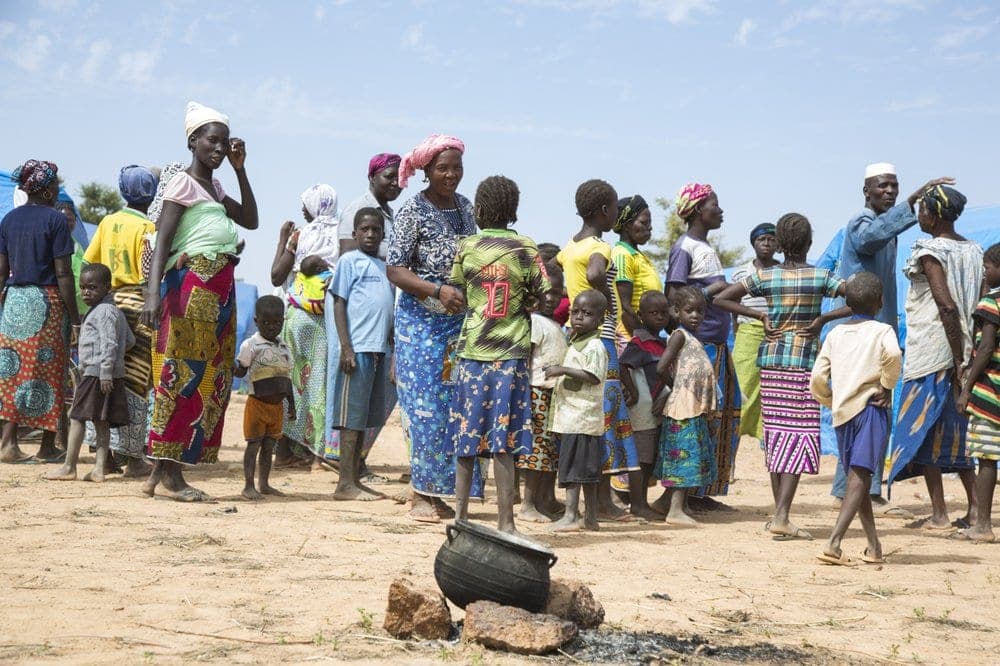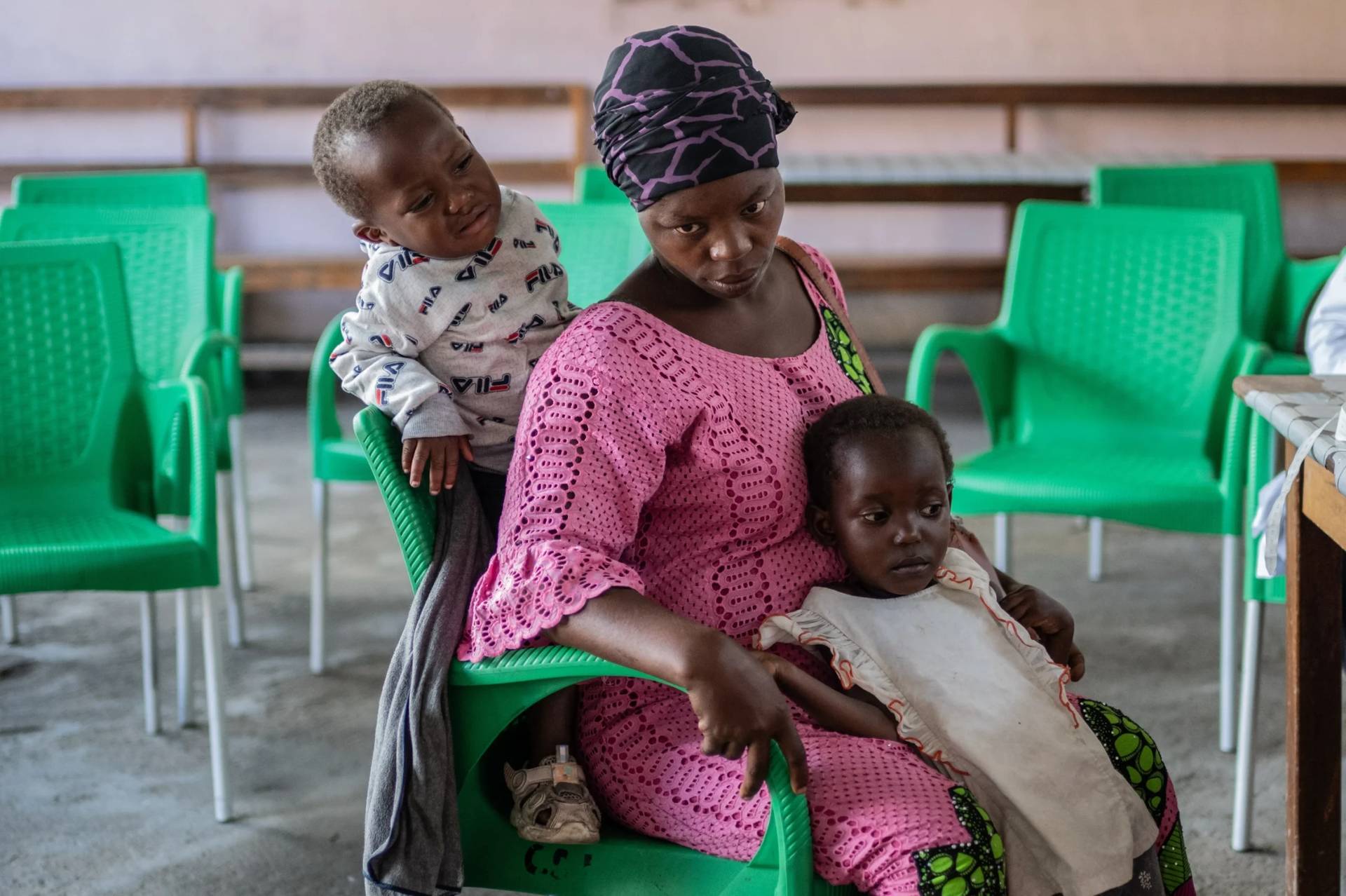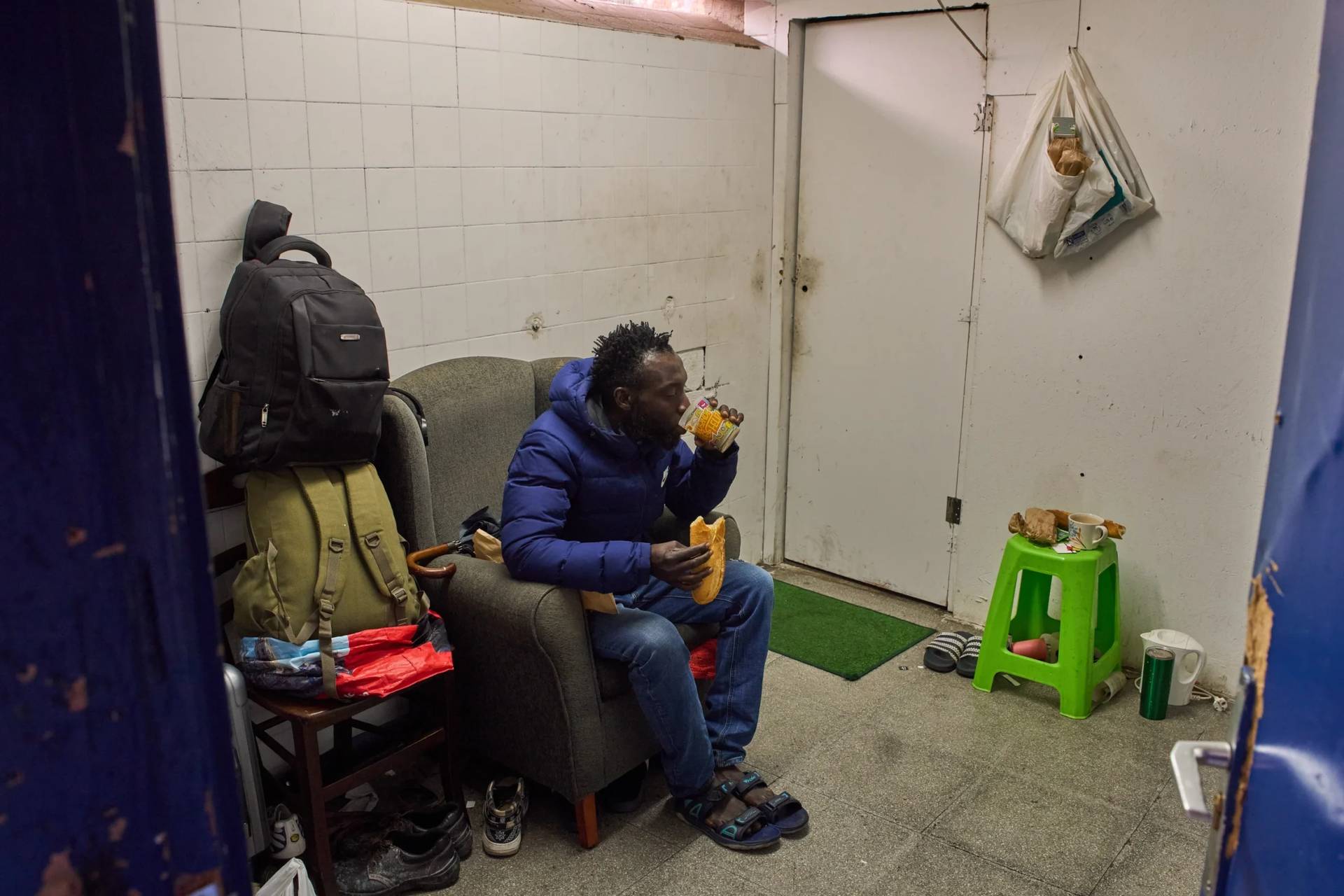YAOUNDÉ, Cameroon – In 2019, Catholic Relief Services (CRS) continued its work in Africa amidst terrorist attacks, political upheaval, and natural disasters.
The international development arm of the U.S. bishops, CRS is expecting even more challenges in 2020.
Speaking with Crux, Michael Stulman, CRS’s Global Marketing and Communications Manager, highlighted the likely hot spots of conflict in 2020, and what the Catholic aid agency plans to do.
Crux: Catholic Relief Service Africa members focus on human development, peace building and economic justice, while practically responding to some of the world’s largest and most complex humanitarian emergencies. How do you assess your response to these challenges?
Stulman: Since 1943, CRS has carried out the commitment of the U.S. Catholic bishops to assist the poor and vulnerable overseas. Our enduring global mission continues to inspire and guide us, from responding to the humanitarian needs of migrants and refugees during World War II to programs and services that today reach over 130 million people across more than 110 countries.
This year, CRS launched its “Vision 2030,” a bold new strategy that will drastically grow the scope of the agency’s programming so that all of our brothers and sisters overseas have the ability to reach their God-given potential. Our strategy will allow people to survive and thrive when disaster strikes; it will ensure that all families have dignified and resilient livelihoods in flourishing landscapes; it will create an environment where all children thrive in safe and dignified families; and it will empower youth around the world to prosper.
Despite working in some of the largest and most complex humanitarian emergencies, we see great momentum and opportunity to drive change.
Which parts of Africa offered the most challenging environments for humanitarian work to be carried out?
CRS has a presence in more than half of the countries in Africa. Our work includes the full range and scope of our agency’s expertise, including emergency response and agricultural programming.
Wherever we serve, we strive to enhance human dignity. We empower the people we serve. And we strengthen and support partner organizations.
Where there is conflict and violence, like in South Sudan, the Central African Republic, Burkina Faso or Democratic Republic of Congo, we are addressing the root causes of that violence, such as poverty, youth unemployment, a lack of education, and an erosion of the social fabric. We are also creating systemic change by strengthening local institutions and government structures to enhance a community’s ability to respond to future crises.
How responsive were donors in terms of their financial commitments?
We are grateful to the continued support of both our public and our private donors. Their consistent generosity has helped us respond faster to emergencies and to continually care for those in need.
We’re proud that year after year, our financial reporting proves that we are dutiful stewards of those resources. CRS has the highest-possible rating from Charity Navigator, an independent organization that evaluates charities based on a number of factors, including accountability and transparency. In addition, we were named a “2019 Top-Rated Nonprofit” by GreatNonprofits, a provider of user reviews of charities and nonprofits.
In 2018, approximately 93 percent of our operating expenses went directly into our overseas programming.
Looking forward to a new year in 2020, has CRS been able to make a guess at the challenges it will face?
We anticipate that violence in the Sahel will continue to escalate and affect more than a million people in the region. The Sahel Peace Initiative is a recent partnership with CRS and the Catholic Church in West Africa to raise awareness of the crisis, and to mobilize funding for humanitarian and development programs in Mali, Burkina Faso, Niger, Cote d’Ivoire and Ghana. This will be a big priority for us in 2020 and beyond.
In addition, we’re alarmed by the continued impacts we’re seeing from climate change, which is already devastating communities from Africa to Asia. Droughts are becoming longer and more frequent; storms are becoming more destructive; and erratic weather patterns are wreaking havoc on farmers worldwide. This will continue to be a major problem in the years ahead unless the international community takes drastic steps to reverse course.
Humanitarian workers sometimes work in dangerous environments and even put their own lives at risk. Did CRS lose any of its workers in Africa last year? If so, what tribute do you pay to them?
The most publicized of our losses happened in March, when four of our staff were killed in the Ethiopian Airways crash that claimed the lives of all 157 people on board. It was a devastating blow to the entire CRS family. Those we lost include Sara Chalachew, Getnet Alemayehu, Sintayehu Aymeku, and Mulusew Alemu. We continue to mourn their deaths, and we pray for their families.
Since the crash, our staff and private donors have raised more than $50,000 for the families of these fallen colleagues. Nearly a year later, we are still celebrating their selfless contributions to our mission, despite the risks and sacrifices that humanitarian work entails.
What message do you have for aid workers and volunteers who will be traveling to very hostile environments across the continent?
Staff safety and security is a top priority for CRS in every country where we operate.
As an agency we strive to reach the most vulnerable people. Inevitably this involves an element of risk for our own staff. But as an organization, we have policies and procedures in place to ensure that our staff can operate within an acceptable level of risk. We deal with crises every day and are accustomed to responding quickly and effectively in situations that have security implications.
We continuously monitor emergency situations and are committed to taking every possible measure to protect and assist our teams on the ground. We’re always in touch with other international agencies, local organizations and the communities on the ground to fully understand the situation and respond accordingly.
Urbanization will continue to expand in Africa, refugees will continue to pose a problem, and conflict and disease are expected to continue to escalate. Did you learn any lessons in 2019 that could help you better respond to these challenges?
For every project, CRS develops a “Theory of Change” which explains how and why a desired change is expected to happen through a project, and how that change is measured. Taking on this approach allows us to collect data in the same manner in different locations so that we can assess our agency-level performance. It also provides us with an opportunity to identify gaps in our knowledge from which we can identify key learning themes.
In 2019, we published almost 100 documents – tools for our staff, partners, other humanitarian and development groups – all of which aim to help us understand the impacts of our work and to continuously improve.
As the world looks forward to a new year, what is your message to the following categories of people: Victims of conflict and war, refugees, migrants and governments?
We would tell them – all of the above groups – that we believe a better, more just world is possible. And we can turn that belief into reality if we stand together and lift up our voices. That’s why our support from the American Catholic community is vital. Working together, we can continue to be a beacon of light to the world’s most vulnerable people in their time of need.
Crux is dedicated to smart, wired and independent reporting on the Vatican and worldwide Catholic Church. That kind of reporting doesn’t come cheap, and we need your support. You can help Crux by giving a small amount monthly, or with a onetime gift. Please remember, Crux is a for-profit organization, so contributions are not tax-deductible.













